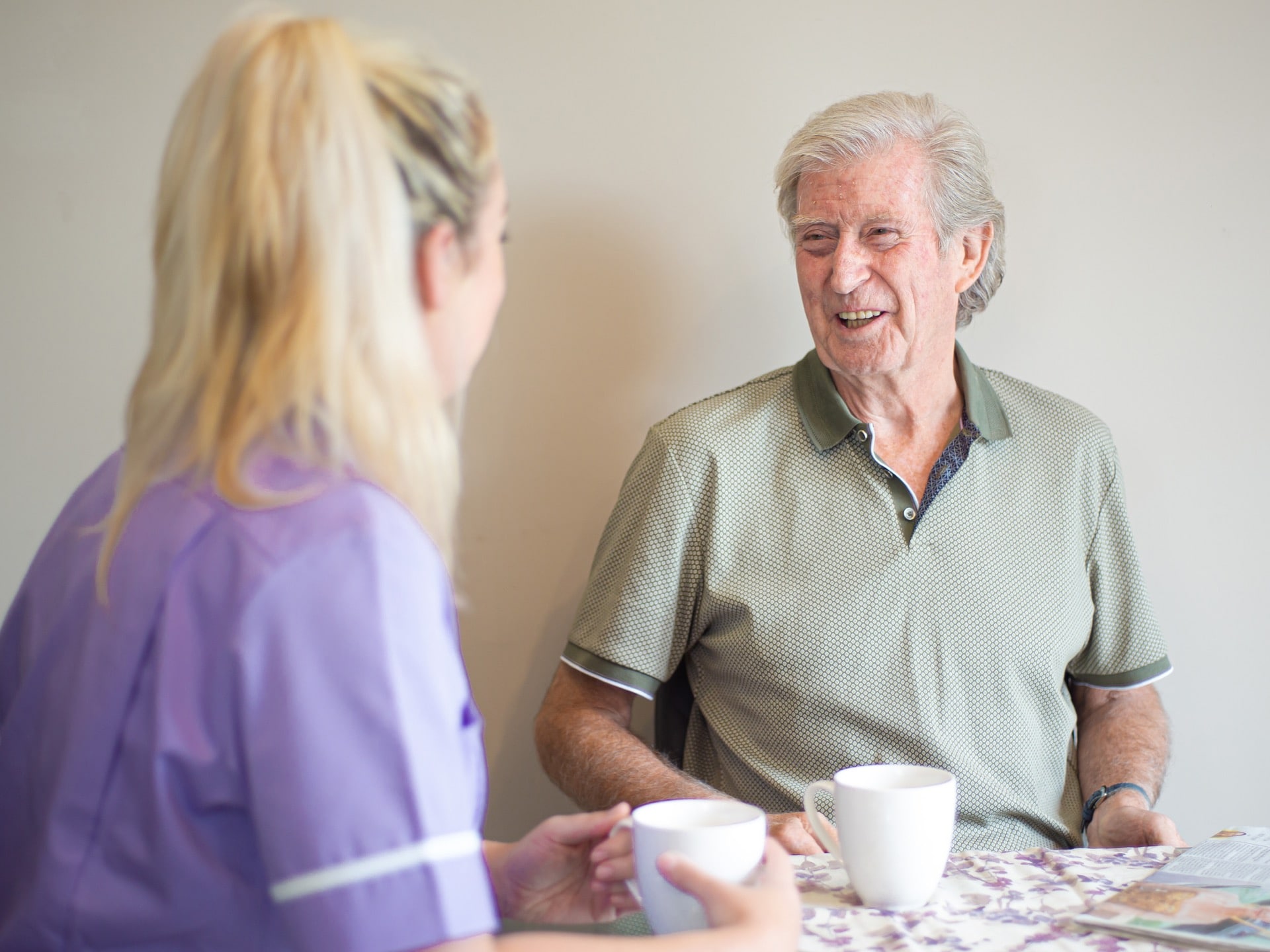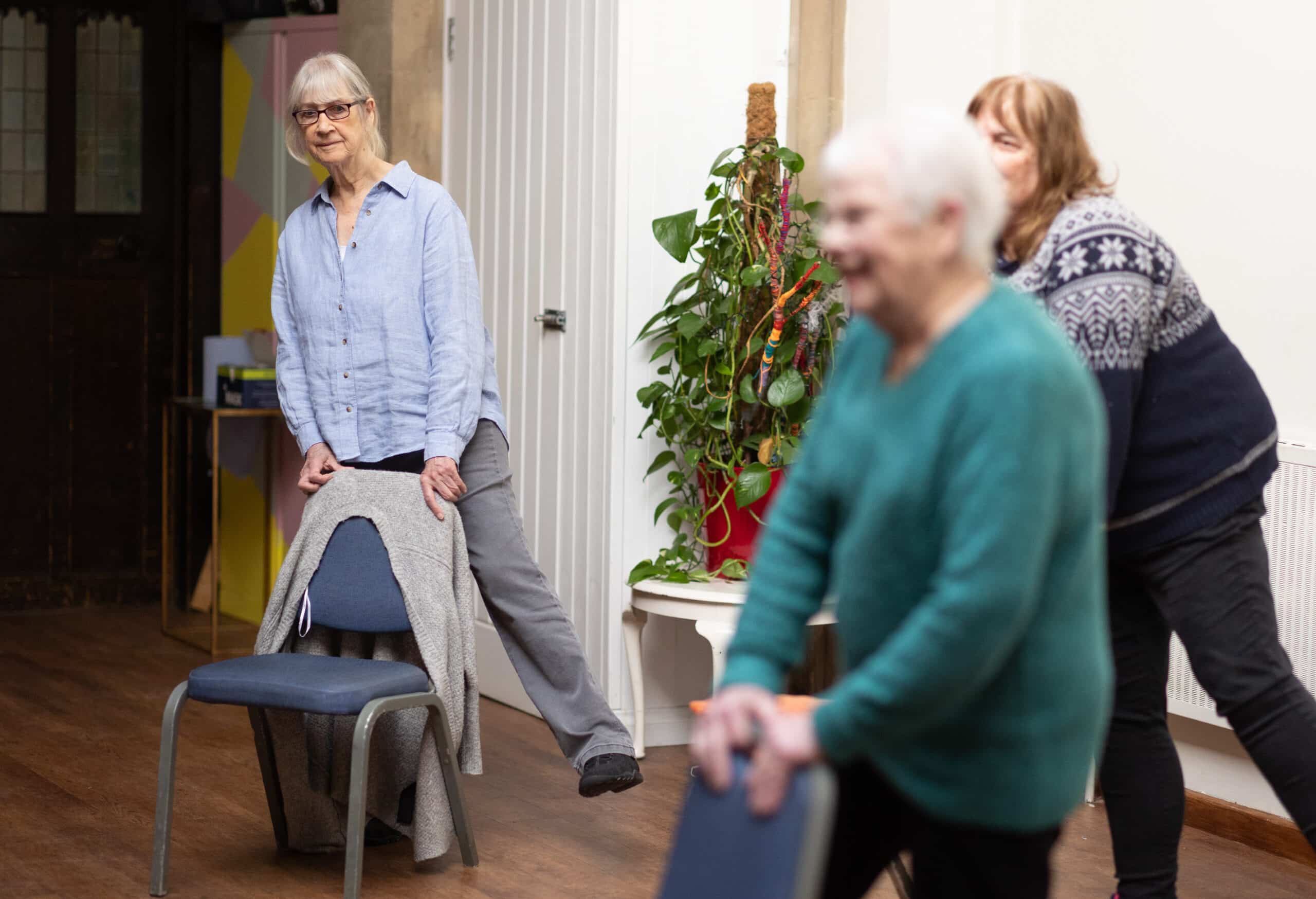How to keep the elderly warm during cold weather

Why do older people struggle to stay warm?
Older people can struggle to stay warm for many reasons, some of these can be related to health conditions, while others can be caused by money worries and a fear of switching on heating. Our bodies change as we age and our immune system naturally gets weaker, meaning that we’re more susceptible to viruses than we might have been too. That can make many older people not want to go out as much in the colder weather, putting them at risk of social isolation, and additional pressure falling onto loved ones’ shoulders. If you’re struggling with getting out and about or would appreciate some companionship at home or help with daily tasks, Helping Hands can make all the difference to your everyday life, thanks to our amazing visiting and live-in care services. Fully regulated by the Care Quality Commission and the Care Inspectorate Wales, our care and support is available across England and Wales, and because we’ve been established since 1989, you’ll be in experienced, compassionate, and knowledgeable hands.

Reasons why older people feel the cold
Loss of muscle mass
Age-related loss of muscle mass is termed sarcopenia, and scientists believe that we lose somewhere between three and eight percent per decade after the age of 30. After the age of 60, the rate of loss is even higher. This is important because once we lose muscle mass and function, we won’t be as strong as we were and in our later years it can increase the risk of frailty and falls. The heart is also a muscle and if this becomes weaker it will impact on every other aspect of our health, due to being unable to pump nutrient-rich blood and oxygen around our bodies properly.
Heart/circulation less efficient
According to the Nursing Times, “An efficient cardiovascular system is essential for health and longevity, but its efficiency reduces with age, which has a negative impact on all other organ systems.” As our body ages, arteries and other blood vessels become less elastic and the arterial walls become thicker and stiffer, which can impact blood pressure. This can also make us feel the cold more because the circulatory system plays a part in the body’s ability to regulate its temperature and the less heat is released by the blood vessels in the skin.
More sedentary lifestyle
Once we retire it’s natural that life is taken at a slower pace, especially if the job that someone had was stressful and high-pressured. However, while losing that stress and pressure can be good for us, going from a busy, full life to stopping can lead to stress in itself, according to the British Psychological Society. “Losing the daily structure and your work relationships can also be stressful and harmful to your health.” While age-related frailties can also make it harder to keep active, even mild activity can help our bodies to keep us warm, such as light gardening or stretches.
Not consuming enough calories
The body needs fuel so that it can function correctly, however if we are not giving it enough fuel it will be unable to maintain our body temperature sufficiently which will lead to us feeling cold. Many older people find their appetite decreases as they age and while this is natural, not eating enough nutritious food will lead to health complications including constantly feeling cold. If the thought of eating large meals has made you go off food, have a word with loved ones about eating less and more often, or eating calorie-dense liquid foods instead.
Ways of keeping warm during winter
Keeping warm during winter can be a constant source of worry for some older people, especially if they are concerned about spiralling utility bills, but there are ways to keep cosy that don’t involve turning up the thermostat. Crucially, finding out what help is available where you live will also help you feel warmer at home, whether it’s meals on wheels, additional benefit payments, or having a Helping Hands carer supporting you at home with keeping active and eating well.
Wrap yourself in layers
Putting on extra layers such as jumpers or fleeces can really help to tackle the cold, as can heat pads and blankets. Hot water bottles are also effective at fighting the cold, but as with anything involving hot surfaces, extra care should be taken with the most vulnerable people.
Get Moving
Even if you are living with age-related frailties or a preexisting condition, there will be some activity that’s suitable for you. This could be sitting in your chair and doing stretches, leg lifts, or something else deemed suitable by your healthcare team, or just walking around your living room or potting your favourite blooms in the garden.
Consume warm food and drinks
Drinking warm drinks can definitely stave off the cold, but some older people are reluctant to drink too regularly if they’re struggling with their continence. Ensuring that older people are reassured that their continence needs will be met should help. Consuming plenty of nutritious calories is also important when fighting the cold.
Keep key areas of the house warm
If the cost of heating the entire house is a concern, then it’s a good idea to only heat the areas of the house that you’re actually using. Switching off radiators in unused rooms may save money, although it’s important to seek professional advice with this, as some experts believe this may impact system efficiency in the long run.

How Helping Hands can help with your Elderly care
Helping Hands can help you with elderly care because we’ve been supporting people to remain as independent as possible in their own homes for four decades. We put our customers at the heart of their care journey, and we don’t believe in ‘one size fits all’ when it comes to elderly care. We have amazing carers supporting our customers across England and Wales, making a difference in their lives every single day. We can help with the practical tasks such as your housework, personal care, medication, and mobility, but we’ll also cook you warming meals, make you a cuppa, and sit with you for a chat. This can help to keep you feeling less isolated which in itself reduces the risk of depression and seasonal affective disorder (SAD).